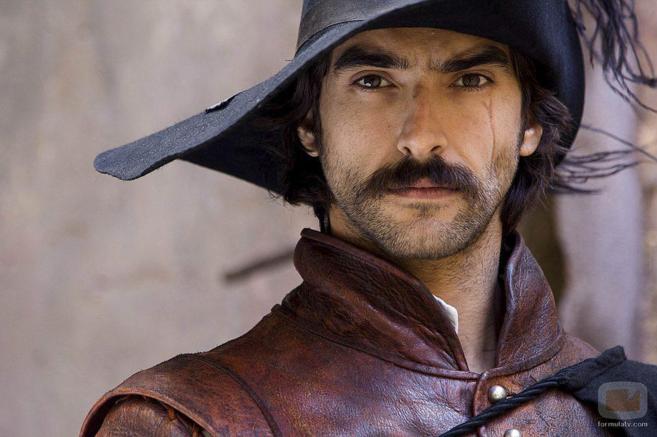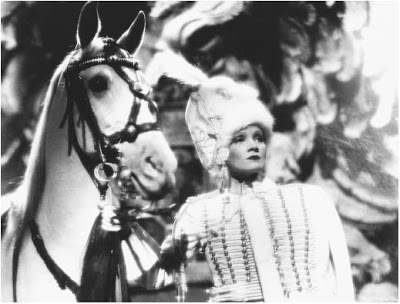History-ish
by wjw on December 2, 2018
 I’ve been deep-diving into history here at Rancho Malario, first with the Amazon Prime series Las Aventuras del Capitán Alastriste, based on the novels by Arturo Perez Reverte. I’ve been a fan of Perez’ fiction for a long while, ever since The Flanders Panel and The Club Dumas. The Alastriste novels are a very good introduction to his work, being fast-moving, action-oriented, and fun. They are also influenced strongly by Alexandre Dumas and his Musketeers.
I’ve been deep-diving into history here at Rancho Malario, first with the Amazon Prime series Las Aventuras del Capitán Alastriste, based on the novels by Arturo Perez Reverte. I’ve been a fan of Perez’ fiction for a long while, ever since The Flanders Panel and The Club Dumas. The Alastriste novels are a very good introduction to his work, being fast-moving, action-oriented, and fun. They are also influenced strongly by Alexandre Dumas and his Musketeers.
I’ve only seen a few episodes of the TV series, but so far it’s exactly what I hoped for.
Captain Diego Alatriste (Aitor Luna) is a soldier-for-hire in the declining years of Spain’s golden age, employed to murder a couple inconvenient Englishmen who turn out to be the Duke of Buckingham (the Buckingham from The Three Musketeers) and the Prince of Wales (the future Charles I), who have come incognito to Madrid to court the Spanish Infanta. (This actually happened, by the way.)
Alatriste senses that something is wrong in this setup and saves the English instead of killing them, which plunges him into a shitstorm of court intrigue involving Philip IV, his chief minister Olivares, the Inquisition, and all their various torturing and murdering henchmen.
The novels are narrated by Alatriste’s young page Iñigo (Marcus Ruiz), and readers know only what he knows; but the series opens up the story, so we get to see all the various conspiracies in play, reaching all the way to Cardinal Richelieu in France.
Iñigo spends much of the novels being in love with the arch-conspirator Angelica de Alcazar, who is twelve at the start and very much like Milady de Winter, only far more evil. She is played with eerie perfection by Carmen Sanchez, whose acting shows a subtlety and maturity far beyond her years. (I found this pretty disturbing, and suspect a deal with the Devil.)
If the series continues— and why wouldn’t it?— the two juveniles will grow naturally as the story progresses, which would be kinda cool.
The cinematography is simply beautiful, and many shots are framed and lit, and the actors costumed, to evoke the paintings of Velasquez and other artists of the period. (It’s filmed in Budapest, not in Spain at all, but it still looks scrumptious.)
There are, I guess, a limited number of actors working in Spanish television, and when people from El Ministerio del Tiempo turned up, I began to wonder if Diego Alatriste had somehow attracted the attention of the Time Patrol.
Among the reasons to like this series is the Italian mercenary whose name translates to Walter Evilhead. Gotta love that.
 I’ve also checked out the Russian series Ekaterina, about the rise of Catherine the Great. The series takes place during the 17 years Catherine spent in Russia before organizing the coup that installed her as Empress.
I’ve also checked out the Russian series Ekaterina, about the rise of Catherine the Great. The series takes place during the 17 years Catherine spent in Russia before organizing the coup that installed her as Empress.
The series seems to be reasonably congruent with the actual history, in which young Sophie of Anhalt-Zerbst (the astoundingly beautiful Marina Alexandrovna) is recruited to marry the nephew of the Empress Elizabeth, who has been designated as her heir. The formidable Elizabeth (Yuliya Aug) intends the newly-christened Catherine to function as breeding stock for the next heir, and blames her when years go by without her becoming pregnant. (The fault lies rather with her hapless husband.)
Portrayals of hapless husband Peter tend to follow Catherine’s autobiography and show him as a drooling imbecile obsessed with torturing animals and subjecting his servants to spontaneous military drills, but Alexander Yatsenko makes the character sympathetic without obscuring the reasons why Peter III had to be shuffled off the throne.
The series does an excellent job of portraying the atmosphere at the Russian court, where everyone is under surveillance all the time, and the penalty for political failure is arrest, torture, execution, and an unmarked grave.
 I topped this off with The Scarlet Empress (1934), Josef von Sternberg’s expressionist telling of the same story, starring Marlene Dietrich.
I topped this off with The Scarlet Empress (1934), Josef von Sternberg’s expressionist telling of the same story, starring Marlene Dietrich.
(Though royalty and power doubtless lend their own glamor, Catherine’s many portraits suggest she didn’t look even remotely like Dietrich or Marina Alexandrovna, but rather more like a plump German hausfrau.)
The Scarlet Empress is a bizarre exercise in style in which the actors take their places amid an enormous set filled with mirrors, shadows, dozens of wooden sculptures of men writhing in highly-stylized agony, and a skeleton laid out on the table of Catherine’s wedding feast. The joys of the wedding night are represented by an obscene cuckoo clock in the form of a woman flashing her nakedness in time to the calls of the cuckoo. (Kind of surprised Sternberg got away with that, actually.) Sam Jaffe plays Peter III as a sinister imbecile, and Louise Dresser, despite her Indiana accent, steals every scene as the Empress Elizabeth.)
Dietrich plays Catherine as a wide-eyed innocent who evolves into a calculating dominatrix, sleeps with much of the army, and then leads her lovers/troops storming into the palace, cackling maniacally as her boyfriend Grigori Orlov brutally murders her husband while bells and cannon ring out in triumph.
This is worth a look for its weirdness alone. Critics tend to use this film to psychoanalyze von Sternberg and his relationship with Dietrich, but that’s just a waste of time. I advise just opening your eyes and staring in gobsmacked amazement. There’s really nothing like it.
 I’ve been deep-diving into history here at Rancho Malario, first with the Amazon Prime series Las Aventuras del Capitán Alastriste, based on the novels by Arturo Perez Reverte. I’ve been a fan of Perez’ fiction for a long while, ever since The Flanders Panel and The Club Dumas. The Alastriste novels are a very good introduction to his work, being fast-moving, action-oriented, and fun. They are also influenced strongly by Alexandre Dumas and his Musketeers.
I’ve been deep-diving into history here at Rancho Malario, first with the Amazon Prime series Las Aventuras del Capitán Alastriste, based on the novels by Arturo Perez Reverte. I’ve been a fan of Perez’ fiction for a long while, ever since The Flanders Panel and The Club Dumas. The Alastriste novels are a very good introduction to his work, being fast-moving, action-oriented, and fun. They are also influenced strongly by Alexandre Dumas and his Musketeers. I’ve also checked out the Russian series Ekaterina, about the rise of Catherine the Great. The series takes place during the 17 years Catherine spent in Russia before organizing the coup that installed her as Empress.
I’ve also checked out the Russian series Ekaterina, about the rise of Catherine the Great. The series takes place during the 17 years Catherine spent in Russia before organizing the coup that installed her as Empress. I topped this off with The Scarlet Empress (1934), Josef von Sternberg’s expressionist telling of the same story, starring Marlene Dietrich.
I topped this off with The Scarlet Empress (1934), Josef von Sternberg’s expressionist telling of the same story, starring Marlene Dietrich.
In a funny moment of “El Ministerio del Tiempo”, the 16th-century soldier Alonso de Entrerríos, after spending a while in the 21th century, asked his friends “who’s this Captain Alatriste everybody compares me with?”
Rancho Malaria would be ungrammatical?
Not only ungrammatical, but un-euphonic.
I have to think that Alonso de Enterrios is the only man in Spain who could kick Alatriste’s butt.
One of el Ministerio’s featured Time Team members that I have spotted on the Spanish television series is Aura Garrido. She plays Amelia Folch the historian whose own time is early 20th century. In Alatristre she’s Inés de Castro, a nun targeted by the Inquisition, whose sister is married to a VIP.
But Alatriste was an earlier series (2013-2015) than El Ministerior del Tiempo (2015-2017). And yah, el Ministerio does indeed in their episodes set in the pre-18th century eras with the look and treatment of period era in Alatriste.
When I found Alatriste had been added to amazon prime streaming I crowed with delight. Some idiot told me that it was hated in Spain for being so bad. I’m not finding it bad — I’m finding it to have the same charms that El Ministerio does, and evidently not everybody find this to their taste. But I love having characters for whom the state of their nation and rulers, their past and present culture and the arts in general, are a meaningful — even a passionate — part of their every day lives.
The later sixteenth and seventeenth centuries are terrific temporal locations for this because many a segment of what might be called the average population were indeed passionately involved with these — and religion too. These were passionate times — and filled with well educated, passionate and brilliant individuals. Spanish productions present this so well, while remaining as entertaining as one wants from one’s historical action adventure presentations.
You mean Alatriste got canceled three years ago? Figures.
I hate the very =idea= of getting involved in a series that was canceled before I knew it even existed!
I know that one reason Spaniards didn’t react well to the series was that it was filmed in Budapest instead of Spain. Whereas we in the US are used to seeing New York being represented by Toronto or Vancouver.
I noticed Aura Garrido right away. It took me a while to realize that Angelica del Alcazar was played by the same actress (Carmen Sanchez) who played Isabella II in El Ministerio.
Basically I get the feeling that these two very long Alatriste seasons of so many long episodes (longer than US or UK average episodes) may cover most of the books’ adventures? The way The Last Kingdom does about 2 – 3 of Cornwell’s novels in 8 (now 10) episodes?
The other terrific Spanish historical series streaming on amazon is the 3 seasons of Isabel — who may be my favorite queen. But there are no English subtitles, only Portuguese and Spanish, and my Spanish is woefully lacking the 15th C castellano idiom and locution (like Altriste is filled with that of 16th madridelino). I have watched episodes anyway — it’s gorgeous. That one can see Spanish subtitles helps, a bit.
You might also like the historical, Sophia, streaming on amazon:
“The story of Sofia Paleologa, niece of Constantine IX, last Byzantine emperor, wife of Ivan III of Russia and grandmother of Ivan the Terrible.” This one is subtitled in English, unlike
Also amazon streaming has up the 2016 ITV crash-and-burn Beowulf, for which an astonishingly detailed and enormous film lot was built. There are 13 episodes.
In Russia, mirror is watching you.
Comments on this entry are closed.